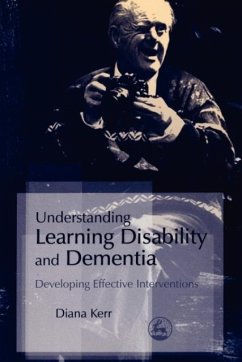
The Social Construction of Intellectual Disability

PAYBACK Punkte
24 °P sammeln!
A range of case studies, drawing upon ethnomethodological and conversation analytic scholarship, reveals how persons categorized as "intellectually disabled" are actually defined through their interaction with care staff and other professionals. Intellectual disability is usually thought of as a form of internal, individual affliction, differing little from diabetes, paralysis or chronic illness. This study's application of discursive psychology to intellectual disability demonstrates that what is usually understood as being an individual problem is actually an interactional or social product.














